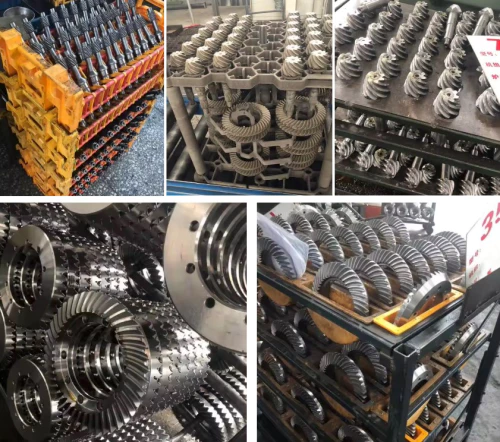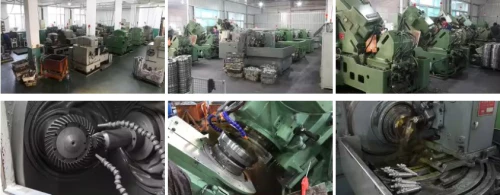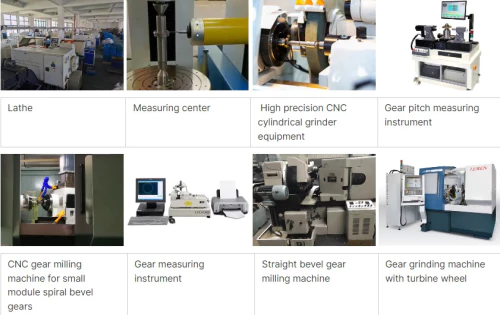What are the main challenges in forging bevel gears?
Introduction
Forging bevel gears are a type of bevel gears that are manufactured through the forging process. Forging involves shaping metal through the application of localized compressive forces, typically using a die or hammer. In the case of bevel gears, the forging process is used to form the gear teeth and create the desired gear geometry.
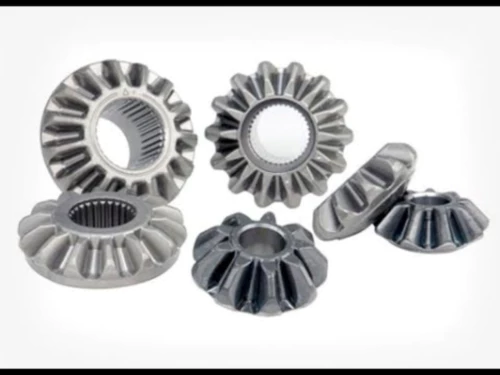
Advantages of Forging Bevel Gears:
1. High Strength
Forging bevel gears exhibit high strength due to the nature of the forging process. The metal is compressed and shaped under high pressure, resulting in a dense and uniform internal structure that enhances the gear's load-carrying capacity.
2. Improved Fatigue Resistance
The forging process refines the microstructure of the metal, making it more resistant to fatigue failure. This is crucial for bevel gears that are subjected to repetitive loading and high stress conditions.
3. Precise Gear Tooth Geometry
Forging allows for the creation of precise gear tooth geometry, ensuring proper meshing and optimal transmission of motion and torque between the gears.
4. Cost-Effectiveness
Forging bevel gears offer cost-effectiveness in terms of material utilization and manufacturing efficiency. The process minimizes material waste and allows for high-volume production with reduced lead times.
5. Versatility in Material Selection
Forging can be applied to a wide range of materials, including various types of steel, alloys, and non-ferrous metals. This versatility in material selection allows for tailored gear solutions to meet specific application requirements.
6. Enhanced Structural Integrity
The forging process improves the structural integrity of bevel gears by eliminating internal defects and improving grain flow. This results in enhanced durability and reliability of the gears.
7. Tailored Mechanical Properties
Forging can be used to control the mechanical properties of bevel gears, such as hardness, toughness, and wear resistance. This allows for customization to suit different operating conditions.
8. Reduced Lead Time
Forging processes are efficient and can achieve high production rates, leading to reduced lead times for the manufacturing of bevel gears.
9. Environmental Sustainability
Forging is a sustainable manufacturing method that minimizes material waste and energy consumption. It promotes environmental responsibility in gear production.
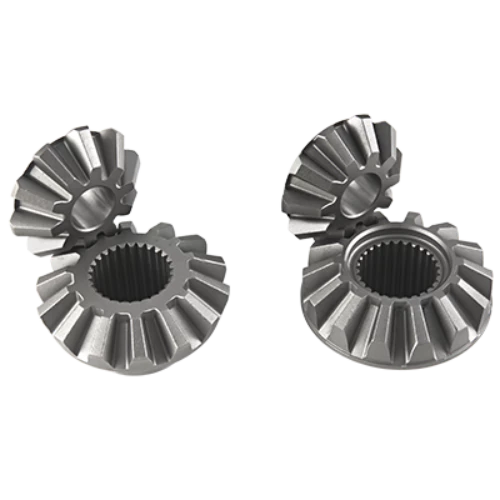
Working Principle of Forging Bevel Gears
Forging bevel gears operate based on the fundamental principles of gear mechanisms. They consist of two intersecting shafts, each with a conically shaped gear (bevel gear) mounted on it. The teeth of the bevel gears are designed to have a specific tooth profile, such as straight, spiral, or hypoid, depending on the application requirements.
When the input shaft rotates, the engagement of the teeth of the bevel gears causes a transfer of rotational motion and torque to the output shaft. The contact between the mating teeth ensures power transmission while maintaining proper alignment and smooth operation.
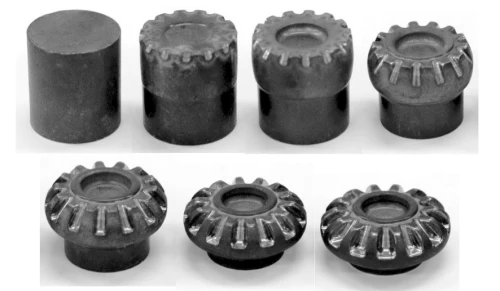
Applications of Forging Bevel Gears
1. Automotive Industry
Forging bevel gears find extensive applications in the automotive industry, particularly in the transmission systems of vehicles.
2. Industrial Machinery
Industrial machinery, such as heavy-duty equipment and machinery used in manufacturing processes, utilizes forging bevel gears for efficient power transmission.
3. Aerospace and Defense
The aerospace and defense sectors utilize forging bevel gears in various applications, including aircraft engines, helicopters, and military vehicles.
4. Renewable Energy
Forging bevel gears are used in wind turbines and other renewable energy systems where precise and reliable power transmission is crucial.
5. Marine and Shipbuilding
Forging bevel gears are essential components in marine and shipbuilding applications, such as propulsion systems and steering mechanisms.
6. Agricultural Machinery
Agricultural machinery, such as tractors and harvesters, relies on forging bevel gears for efficient operation and power transmission in demanding agricultural environments.
7. Power Generation
Forging bevel gears play a vital role in power generation systems, including turbines, generators, and other equipment used in power plants.
8. Robotics and Automation
Forging bevel gears are crucial in robotics and automation systems, enabling precise and efficient motion control in various applications.
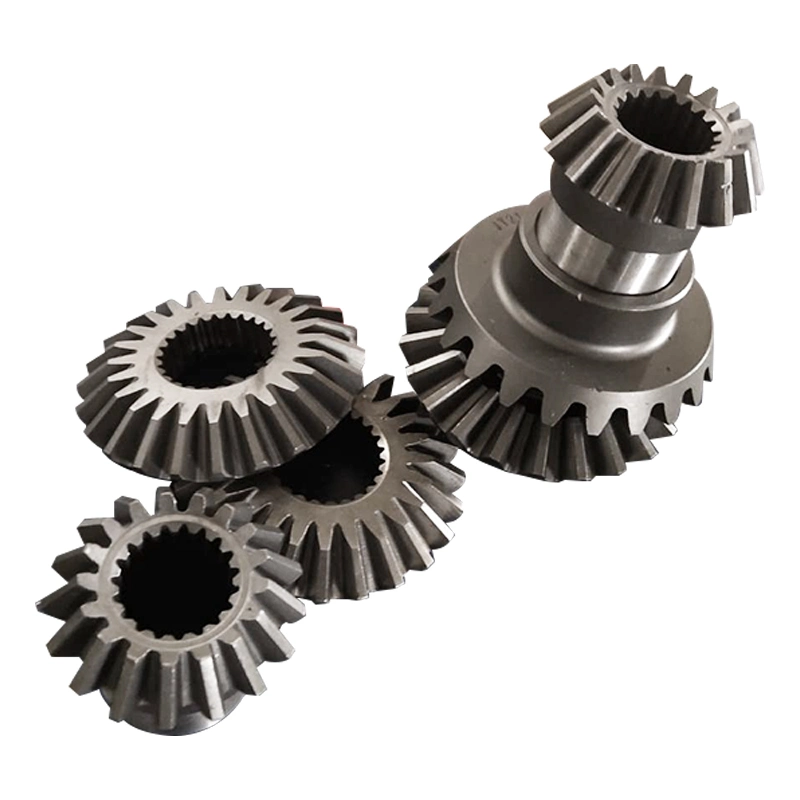
Installation and Maintenance of Forging Bevel Gears
Installation:
1. Proper Alignment: Ensuring accurate alignment of the bevel gears to prevent excessive wear and premature failure.
2. Lubrication: Applying appropriate lubrication to reduce friction and wear between the mating gear surfaces.
3. Mounting Bolts: Securely fastening the bevel gears to their respective shafts using proper mounting bolts.
4. Inspection: Conducting thorough inspections to check for any defects or misalignments before putting the gears into operation.
Maintenance:
1. Lubrication: Regularly lubricating the bevel gears to maintain optimal performance and prevent excessive wear.
2. Cleaning: Keeping the gears clean from dirt, debris, and contaminants that can affect their functionality.
3. Inspection: Regularly inspecting the gears for signs of wear, damage, or misalignment and taking appropriate actions.
4. Replacements: Replacing worn-out or damaged bevel gears with new ones to ensure proper functioning.
5. Gearbox Maintenance: Maintaining the gearbox housing the bevel gears to ensure overall system integrity.
6. Load Monitoring: Monitoring and managing the loads applied to the bevel gears to prevent overloading and premature failure.
7. Training and Expertise: Providing proper training and expertise to personnel responsible for the maintenance of bevel gears.
8. Record-Keeping: Maintaining records of maintenance activities, inspections, and replacements for future reference and analysis.
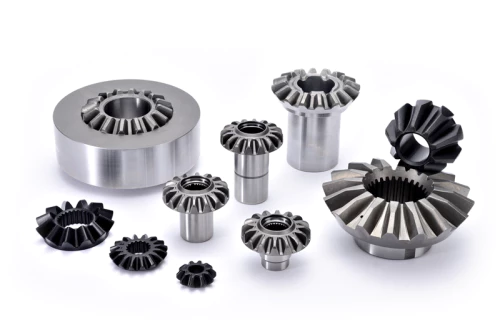
Selecting the Right Forging Bevel Gear
When selecting a forging bevel gear, several factors need to be considered:
1. Application Requirements
Understanding the specific requirements and operating conditions of the application for which the gear will be used.
2. Design and Specifications
Choosing a gear design and specifications that align with the application requirements and performance expectations.
3. Material Selection
Selecting the appropriate material based on factors such as strength, durability, and compatibility with the application environment.
4. Quality and Reliability
Ensuring that the forging bevel gear meets the required quality standards and has a proven track record of reliability.
5. Load-Carrying Capacity
Evaluating the gear's load-carrying capacity to ensure it can handle the expected operating loads without failure.
6. Efficiency and Performance
Considering the gear's efficiency and performance characteristics to optimize power transmission and minimize energy losses.
7. Customization and Adaptability
Assessing the gear's ability to be customized and adapted to specific application requirements or modifications.
8. Cost Considerations
Taking into account the overall cost-effectiveness of the gear, considering factors such as initial cost, maintenance, and lifecycle costs.
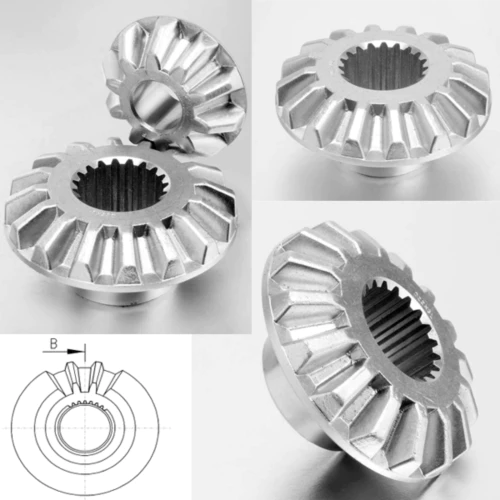
Shaoxing Chaoli – A Leading Manufacturer of Forging Bevel Gears
Shaoxing Chaoli is a professional manufacturer of gears in China. With a wide range of gear products, including forging bevel gears, worm gears, spiral bevel gears, helical gears, spur gears, plastic gears, and metric gear racks, Shaoxing Chaoli offers comprehensive solutions for various industries.
Our products are exported to different countries such as Spain, the Netherlands, the United States, South Korea, Turkey, and Russia. Shaoxing Chaoli is committed to helping customers develop new products and solving technical and quality problems. We strive to meet the needs of users with high-quality products, fair prices, and perfect services.
In short, we adhere to the principles of quality first, timely delivery, and credit first. We treat every business partner sincerely and wholeheartedly welcome friends from the business community to cooperate with us to develop together and create brilliance.
Besides forging bevel gears, Shaoxing Chaoli offers other gear products such as worm gears, spiral bevel gears, helical gears, spur gears, plastic gears, metric gear racks, and more. Customers are welcome to inquire about customized products.
Shaoxing Chaoli is a professional manufacturer of gears in China. Its products are mainly sold to hundreds of fixed suppliers such as domestic steel rolling mills, shipyards, precision machine tool factories, automation machinery factories, and various distribution companies, and exported to Western Europe, the Middle East, Southeast Asia, and other countries and regions.
The developing Shaoxing Chaoli currently has hundreds of employees, including many engineers, with fixed assets of 20 million yuan and an annual output value of 50 million yuan. The company has a complete set of strict quality management systems, equipped with a series of precision measuring instruments such as optical projectors and 16 full-process production monitoring systems. Shaoxing Chaoli has considerable competitiveness in the same industry.
